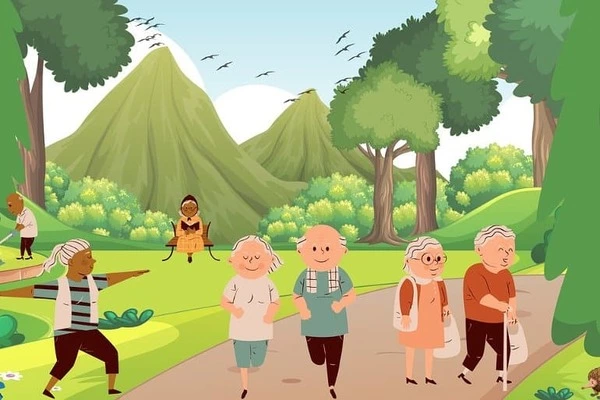Stories in the media frequently depict how daily stress can have a negative impact on people’s lives, ranging from physical health to mental and emotional well-being. However, there is some good news regarding the experience of daily stress as people age. According to the findings of a recent study led by David Almeida, professor of human development and family studies at Penn State, the number of daily stressors and people’s reactivity to daily stressors decreases with age. The study’s findings were published in Developmental Psychology.
“There’s something about getting older that leads to fewer stressors,” Almeida explained. “This could be the kinds of social roles we take on as we get older. As younger people, we may be juggling more responsibilities, such as jobs, families, and homes, all of which contribute to daily stress. However, as we get older, our social roles and motivations shift. Older people talk about wanting to make the most of their time.”
The research team used data from the National Study of Daily Experiences (NSDE), a national study led by Almeida at Penn State that collected detailed data on daily life from over 40,000 days in the lives of over 3,000 adults over a 20-year period beginning in 1995. Respondents ranged in age from 25 to 74 at the start of the study and were invited to take part as part of the larger Midlife in the United States (MIDUS) project led by the University of Wisconsin-Madison Institute on Aging.
Growing older between the ages of 35 and 65 is very different from growing older between the ages of 65 and 95. We’ve already begun to see that in the data, but this next round of data collection and analysis will provide us with a better understanding of what that looks like.
David Almeida
For eight days, respondents took part in phone interviews to assess their daily stress levels. These daily assessments were repeated at roughly nine-year intervals, resulting in a 20-year longitudinal daily diary.
The researchers observed a decrease in the effects of daily stress in both the number of daily stressors reported by people and their emotional reactivity to them. For example, 25-year-olds reported stressors on nearly 50% of days, whereas 70-year-olds reported stressors on only 30% of days.
In addition to a decrease in the number of daily stressors reported, Almeida and the research team discovered that as people age, they become less emotionally reactive to daily stressors when they do occur.

“A 25-year-old is much grumpier on the days when they experience a stressor, but as we age, we really figure out how to decrease those exposures,” said Almeida, who noted that daily stress steadily decreases until mid-50s, when people are the least affected by stress exposures.
While these findings show a decrease in daily stressor reports and reactivity into the mid-50s, Almeida notes that early indicators suggest that older age, into the late 60s and early 70s, may bring more challenges and a slight increase in instances of daily stress.
With this discovery, Almeida anticipates the next round of MIDUS data collection, which will be the first since the COVID-19 pandemic began in early 2020. This new round of data collection will allow Almeida and his colleagues to assess the pandemic’s impact on daily stress reactivity.
The next round of data collection also will allow the team to further study how people grow and change during adulthood.
“Growing older between the ages of 35 and 65 is very different from growing older between the ages of 65 and 95,” Almeida explained. “We’ve already begun to see that in the data, but this next round of data collection and analysis will provide us with a better understanding of what that looks like. I’ll be in my early 60s at the end of the next post-pandemic data collection in a couple of years, and I started this project when I was in my late 20s “He went on. “During this study of midlife, my own development occurred, and it has been enlightening to watch these findings play out in my own life.”
We are all aging and growing older in different ways, according to Almeida. How we age is determined not only by the challenges we face, but also by how we respond to those challenges.
“A lot of my previous research looked at these small, daily stressors – being late for a meeting, arguing with a partner, caring for a sick child and discovered that our emotional responses to these events predict later health and well-being, including chronic conditions, mental health, and even mortality. It’s encouraging to see that as we get older, we get better at dealing with these stressors. On average, the experience of daily stress will improve rather than worsen.”
















